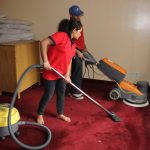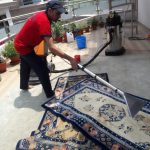Shankhamul, Kathmandu, Nepal
01-4791239 , 9851001728, 9851100448

What’s the Difference Between Sanitizers and Disinfectants?
In the facility maintenance world, we come up against a lot of misuse and confusion between the words sanitizer and disinfectant.
So what is the difference, really, between these two categories of products?
In short, sanitizers lessen microbes on a surface by at least 99.9%, disinfectants kill a more extensive scope of microorganisms (than sanitizers), and cleaners essentially eliminate dirt, soil, and pollution from surfaces. OK?
The above is a simple explanation.
Below is more extensive research on the differences between Sanitizers, and Disinfectants.
EPA Certification
Sanitizers and disinfectants are regulated by the Environmental Protection Act (EPA) from the Government of Nepal. Furthermore, the product should be ensured through a cycle that tests them to meet certain pre-characterized models. By law, a synthetic item can’t be named as a sanitizer or a disinfectant except if and until it is EPA ensured.
Germ Specificity
Both sanitizers and disinfectants must be tested against specific germs. Chemical labels must list out each of these germs individually. It’s critical to comprehend that a single sanitizer or disinfectant won’t kill all microorganisms and know which germs your product works against. Sanitizers are ensured for bacteria only, while disinfectants can likewise be confirmed to kill viruses, mold, mildew, and fungi.
Time to Kill
The time it takes to eliminate germs is one more factor that is significant while assessing both sanitizers and disinfectants; furthermore, this must likewise be recorded on the product’s label. Some products kill particular germs in 5 minutes, and others may be fast or less. This term is called “dwell time” and should be considered when choosing and utilizing sanitizers and disinfectants for different applications.
A Note About Sanitizers
Sanitizers are most often used in foodservice settings, but not always. If a product is labeled a “food contact” sanitizer, it can be safely used to clean surfaces that will later touch food. Food contact sanitizers should be applied according to instructions and allowed to dry completely before the food comes in contact with them.
To summarize it all
- Sanitizers kill certain bacteria, in a specific period of time, and are regulated by the EPA.
- Disinfectants kill certain bacteria, viruses, mildews or fungi, in a specific period of time, and are also regulated by the EPA.

We are a pioneer commercial and janitorial cleaning service provider in Nepal. We have decades of trust from thousands of clients in providing 100% quality services to glow your home, office and corporate premises. Clean living & working space means healthy thoughts and positive growth.
Featured Services
Contact
9851100448
Shankhamul, Kathmandu, Nepal
facilitysalesdpt25@gmail.com
Facility Service © All Rights Reserved.




